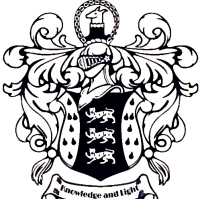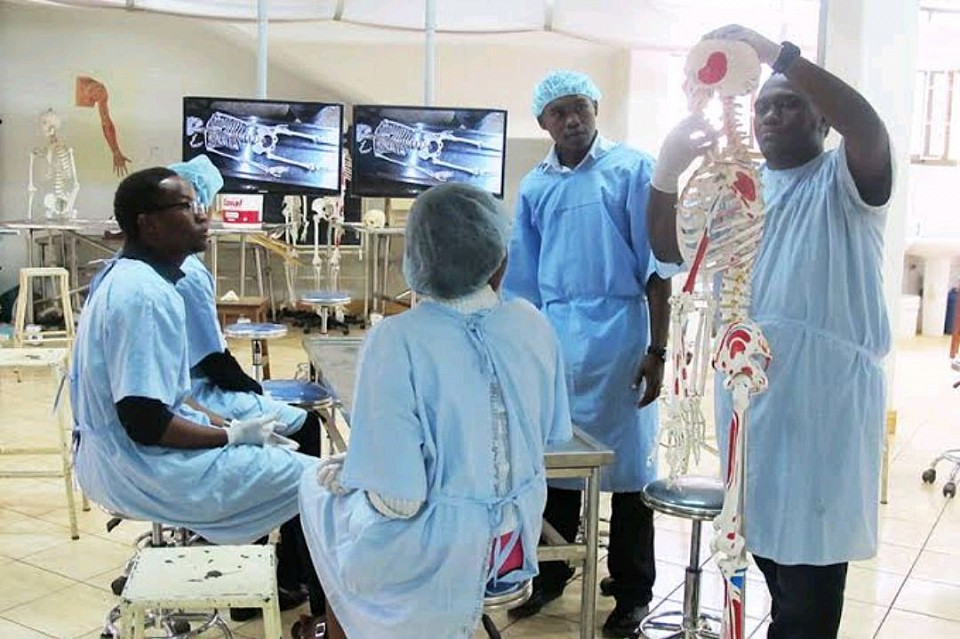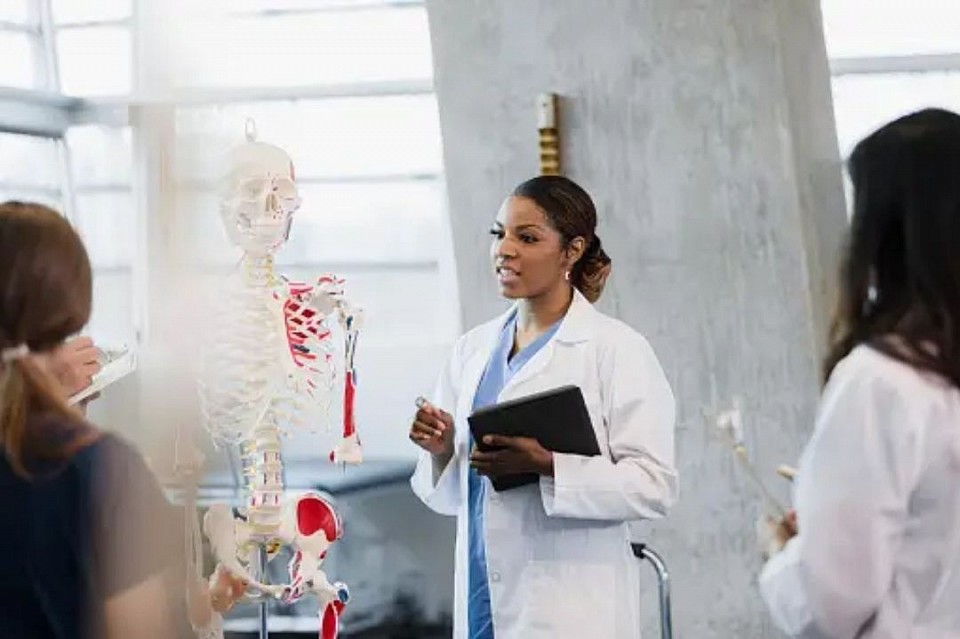WELCOME TO THE SCHOOL OF MEDICAL SCIENCES
LEARN ABOUT US
The School of Medical Sciences encompasses seven multidisciplinary research themes that reflect the strength, diversity, and depth of our research.
These include Biomedical Informatics and Digital Health, Chronic Diseases, Molecular Biomedicine, Infection, Immunity and Inflammation, Musculoskeletal Science, Neuroscience, and Education and Innovation.
The School of Medical Sciences is made up of SIX Departments namely Departments of Physician Assistant Studies, Clinical Anatomy, Human Physiology, Medical Microbiology, Clinical Biochemistry & Human Neuroscience.
Our themes signify areas of importance to our Indigenous communities and broader society, nationally and internationally, and reflect our partnership with stakeholders such as research institutes, local health district partners, granting bodies, government organisations, philanthropists and importantly students.
The School of Medical Sciences delivers teaching into a variety of programs, including Science, Medical Science, and several professional degrees like the Bachelor of Science degrees in Physician Assistantship Studies, Clinical Anatomy, Human Physiology e.t.c.
OUR PROGRAMS
THE 3-YEAR BACHELOR OF SCIENCE (B.S.) PROGRAM IN PHYSICIAN ASSISTANT STUDIES
Our 3-Year BS Program in Physician Assistant Studies runs for 9 consecutive semesters and it educates students to become highly-educated and qualified physician assistants.
Physician assistants are health professionals licensed to practice medicine with physician supervision.
Our curriculum focuses on the advanced study of medicine and public health, along with the principles of community and population-based research, ending with a presentation of a capstone project based on participation in a community-based research initiative.
Graduates of our program are educated to practice in any field of medicine they choose.
Physician Assistants can be found in general medical and surgical hospitals, public or private practices, outpatient care centers, health maintenance organizations, government agencies, colleges and universities, and professional schools.
The Physician Assistant Studies Program at James Cook School of Medicine will prepare you for a worthwhile and fulfilling career in medicine.
Graduates of the JCSM PA Program are employed in some of the best hospital centers in and around Cook Islands, New Zealand and abroad area within the following medical specialties:
Outpatient medicine or primary care, Emergency Medicine, Orthopedic Surgery, General surgery, OB/GYN, Neonatology
Others are employed in hospital-based medicine, critical care, urology, pain management, rehabilitation medicine, breast surgery, oncology, pediatrics, addictive medicine, dermatology and interventional radiology.
THE 3-YEAR BACHELOR OF CLINICAL SCIENCE (B.CLIN.SC.) PROGRAM
Our 3-Year Bachelor of Clinical Science (B.Clin.Sc.) program will be of interest and relevance to any student hoping to work in health or science careers.
We welcome applications from students who have applied to other health professional courses.
Whether you want to have a science career, study a postgraduate programme leading to qualification as a health professional, or work in healthcare management, this program can be the first step towards your future. In addition to studying science and health focused modules, we actively work with you to develop essential graduate and employability skills.
The program provides the opportunity to enhance your profile further with an optional placement year between years two and three, enabling you to either work in a relevant field or enter into Medical School.
Entry onto the clinical sciences course is either directly onto our three-year program or via our clinical sciences with integrated foundation year programme, which prepares you to study Medicine or other allied health sciences courses
The course has a clinical focus and a strong emphasis on anatomy, physiology, and employability skills. The course is informed by research, clinical expertise, and benefits from being taught by scientists and healthcare professionals from a wide range of specialist areas.
With an integrated knowledge and understanding of science and health-related issues, you will be in an excellent position to pursue a variety of careers within the health sector or pharmaceutical industries.
Clinical sciences graduates have progressed to postgraduate study, leading to careers in medicine, the healthcare sciences and other healthcare roles such as:
- Physician Associate
- Dentist
- Healthcare Manager
- Health Commission Associate
- Medical Sales
Clinical sciences has embedded key transferable skills into each module, which will help you succeed in graduate jobs or post-graduate study.
Our focus is to widen participation in medical and healthcare education in students from underrepresented groups.
The course covers the pre-medical years and provides an opportunity for eligible widening participation students to enter year one of the MD program at the James Cook School of Medicine or any other Medical School from Stage 1 of the Clinical Sciences degree (subject to meeting academic, widening participation,
criteria and passing the Multiple Mini Interview - please see School of Medicine for further details).
Our graduates have applied successfully to most medical schools in New Zealand, United States and Australia, including the James Cook School of Medicine, as well as graduate entry programs.
We are proud to see that 50-60 % of our final year students receive offers for medicine or dentistry.
AREAS OF STUDY
- Anatomy
- Physiology
- Biochemistry
- Embryology
- Genetics and Genomics Histology
- Neuroscience
- Human Biology Immunology
- Medical Microbiology,
- Pathology
- Pharmacology
- Physics
professional skills and knowledge for working in healthcare and medical and research settings
THE 3-YEAR BACHELOR OF SCIENCE (B.S.) IN CLINICAL ANATOMY
A sound knowledge and understanding of human anatomy is required in almost all medical specialities, not simply in the obvious disciplines like surgery, pathology and radiology.
Our B.S. Clinical Anatomy course gives you the opportunity for hands-on study, supported by a wide range of digitally-enabled, inclusive and active learning opportunities in areas including gross anatomy, neuroanatomy, medical imaging and medical embryology.
The anatomy team is small and friendly, with diverse backgrounds that bring a wide range of perspectives and approaches to the program which will support you in your own personal development of the subject matter.
The program team work very closely with the intercalating anatomy students and get to know them very well through partnership activities and small group interactions.
A high number of students on this degree program have gone on to develop the necessary skills to deliver oral or poster presentations at national meetings, with some also winning awards for these presentations and output.
THE 3-YEAR BACHELOR OF SCIENCE (B.S.) IN HUMAN PHYSIOLOGY
The 3-Year B.S. Human Physiology major provides a broad background in science and health while simultaneously preparing students to analyze the functions of the human body in a variety of research and clinical settings.
The major in Human Physiology includes the prerequisites for admission to graduate programs in medicine, dentistry, and other health professions, as well as in basic science research.
Students are also well prepared for careers in the pharmaceutical or biotechnology industries, and for clinical or laboratory research.
Students take core courses in the sciences as well as JCSM requirements during the first two years of the program.
During the final year of study, Human Physiology majors take advanced courses in gross human anatomy, exercise physiology, and other human health-focused electives.
During the penultimate year, students complete an internship at one of the selected healthcare sites in the Cook Islands or at international sites through JCSM Study Abroad.
Students in the Human Physiology major are also eligible to apply for the accelerated five-year Bachelor of Science and Master of Science (B.S./MS) in Human Physiology and the Bachelor of Science and Master of Public Health (B.S./MPH), offered in conjunction with the JCSM School of Public Health.
THE 3-YEAR BACHELOR OF SCIENCE (B.S.) IN CLINICAL BIOCHEMISTRY
Embark on an exciting journey into the intricate world of Clinical Biochemistry.
Designed to provide students with a comprehensive understanding of the fundamental principles and applications of medical biochemistry, this degree equips graduates with the skills and knowledge necessary for a successful career in various scientific fields.
As a student in our BS in Clinical Biochemistry program, you will engage in a rigorous curriculum that covers a wide range of topics essential to the study of biochemistry. Dive into the realms of molecular biology, clinical anatomy, human physiology, pharmacology, medical genetics and cell biology, exploring the structures and functions of biological molecules and the intricacies of cellular processes. Build a strong foundation in organic chemistry, gaining insights into the chemical properties and reactions of organic compounds.
Hands-on experience is a vital component of our program. Through laboratory experiments and biochemistry techniques, you will develop practical skills and learn to apply scientific analysis in real-world and Clinical scenarios.
Explore the Clinical biochemical pathways that underlie essential biological processes, unraveling the intricate mechanisms of life.
With a focus on healthcare professions, our program offers a pre-medical track and prepares students for further graduate studies or medical school.
Whether you aspire to become a physician, dentist, pharmacist, or pursue other healthcare professions, our curriculum provides a solid foundation for your future endeavors.
Additionally, the integration of chemistry and biology in our program prepares you for multidisciplinary research and collaboration in the medical and scientific community.
THE 3-YEAR BACHELOR OF SCIENCE (B.S.) IN MEDICAL MICROBIOLOGY
Is it your goal to have a health-related career? When you possess the important critical thinking skills and competencies pertinent to the biomedical sciences and the curricular background that's applicable to the changing world of medicine, you'll be prepared for advanced education in the health area of your choice.
The medical microbiology concentration serves students in the BS microbiology degree program who aim to pursue careers in health professions, medical microbiology or biomedical research.
The curriculum aligns with the scientific competencies recommended for premedical students. Coursework includes many of the courses in the microbiology major, including chemistry, biochemistry, math and physics, with some microbiology courses replaced by cell biology, animal physiology and courses that relate to human biology and society.
The coursework emphasizes core concepts, competencies and critical intellectual skills necessary for success in medical school or biomedical research.
The concentration includes coursework that students need in preparation for the MCAT or medical school admission.
THE 3-YEAR BACHELOR OF SCIENCE (B.S.) IN HUMAN NEUROSCIENCE
The Human Neuroscience BS is a three year course which introduces students to the emerging discipline of human neuroscience.
We are at the beginning of what has been called ‘The New Century of the Brain’. New technologies and new understanding of biology and behaviour are driving development in this vibrant and expanding field.
The Human Neuroscience BS places special emphasis on human aspects of the field: cognitive neuroscience, diseases and disorders of the nervous system and clinical and psychological topics.
Whilst it has a human focus it has a broad multidisciplinary scope, with modules drawn from Biosciences, Sport, Exercise and Rehabilitation Sciences, Computer Science, Psychology, Philosophy and Medicine.
The Human Neuroscience BS is a specialised degree course for highly qualified students that will provide instruction in cutting-edge neuroscience. The field is rapidly expanding under the influence of new technologies and collaboration across traditional disciplines. It addresses a number of social challenges including brain disease, mental health problems and maintaining health in an aging population.
In the first year, there is a range of core modules that provide the biological and behavioural basis for more in-depth analysis in subsequent years.
Topics covered include the physiology of nerve cells, pharmacology, evolution, genetics, perception and memory.
In the second year, there are a number of options available for selection. These include cognitive neuroscience topics (eg, perception and movement), sport and exercise science topics (the control of human movements), computational approaches to data analysis, and even the philosophy of the mind-body problem.
Additional options allow further in-depth study of neurophysiology and pharmacology, evolution and human behaviour.
In the final year, students undertake an extended research project, under the supervision of internationally recognised experts with access to state-of-the-art laboratories for MRI, EEG, TMS, tDCS, eye-tracking, visual attention, psycholinguistics, motion tracking, posture and balance, food and nutrition, social cognition, neuropsychology, and child development.
Graduates will be prepared for further advanced studies in neuroscience or careers in industry or healthcare settings.



